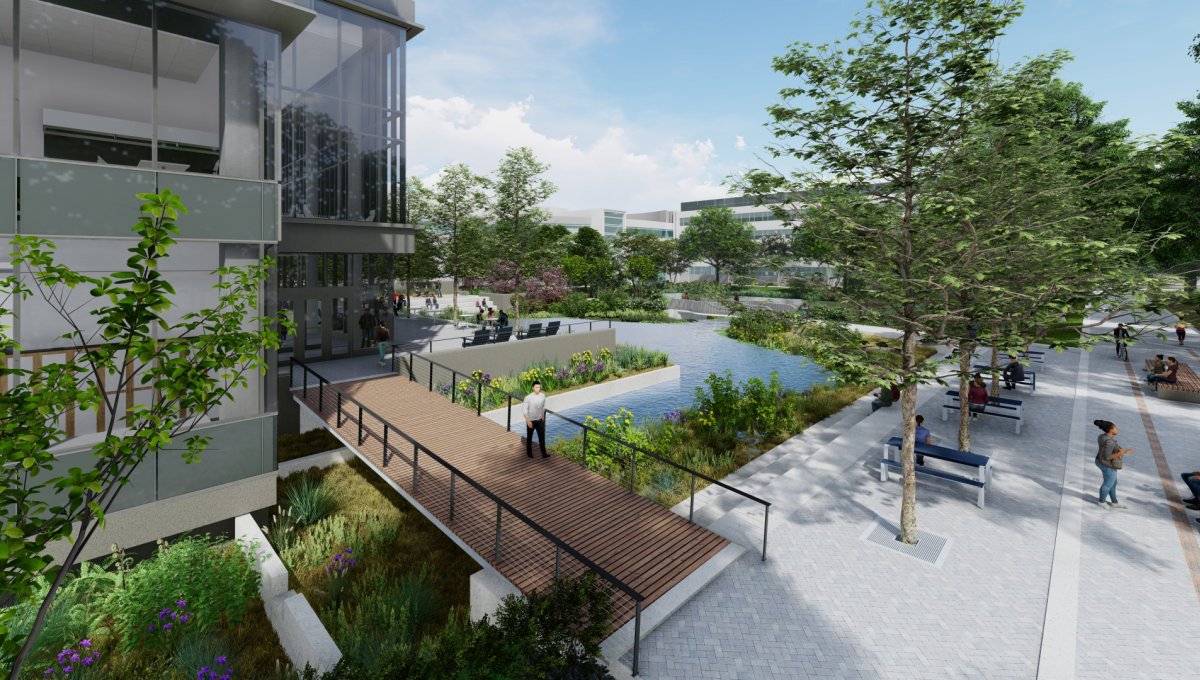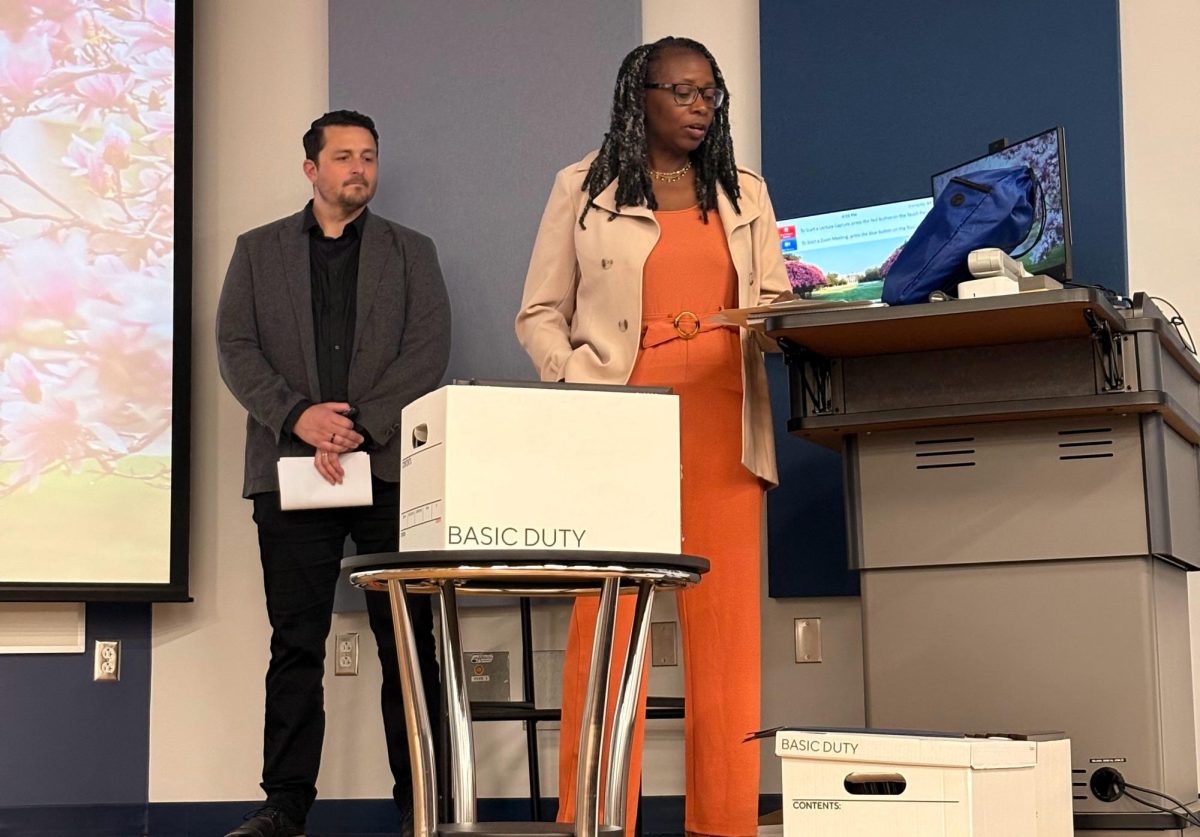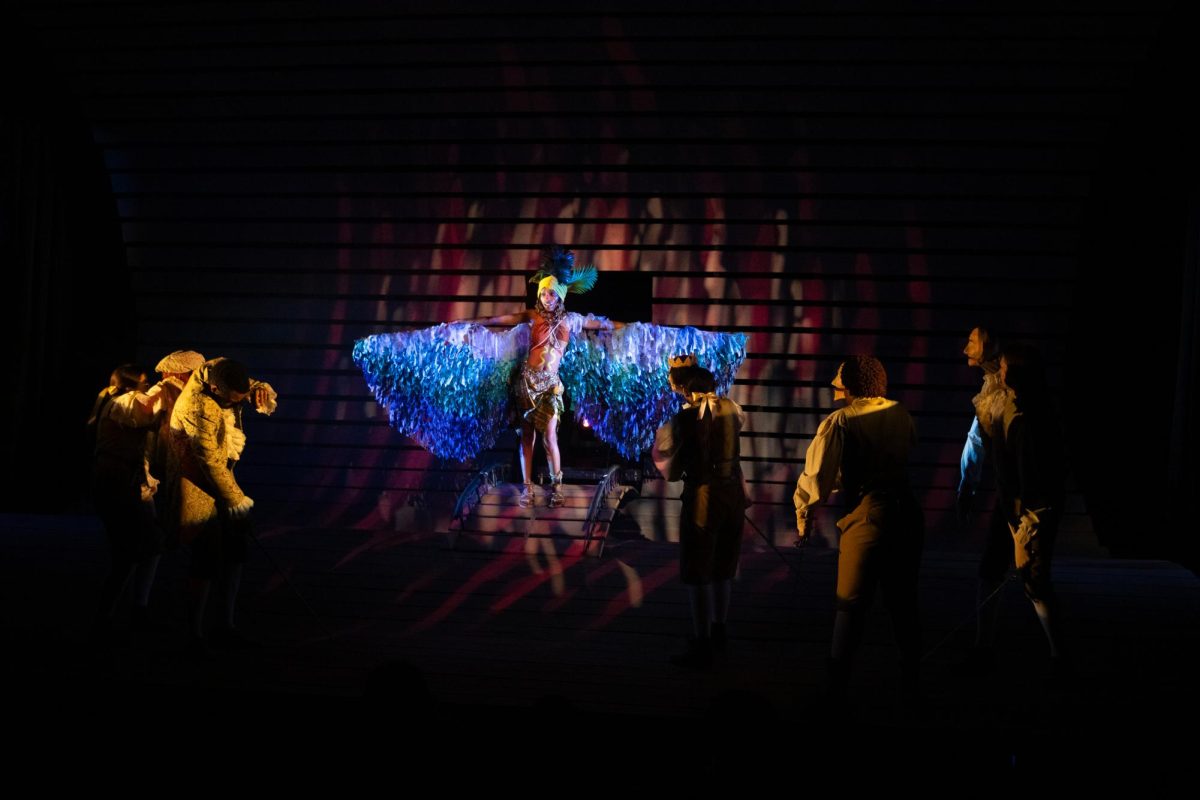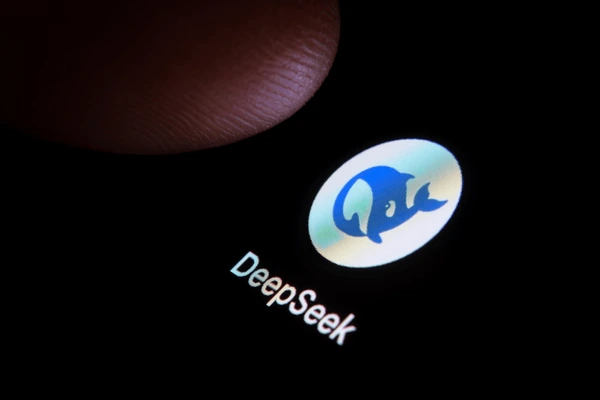Before and After: Snapshots of COVID Impact on College Students
November 15, 2022
This article first appeared in the fall 2022 Mace & Crown magazine issue.
Before COVID-19 hit, Justice Menzel was a different person. So was Monique Fountain, and Keith Demarah.
College has always been a place of growth, but in the past two and a half years students have had to deal with unprecedented changes, the trauma of isolation, and lives lost. These challenges, along with the shock of a “new normal” have impacted students’ lives as they get ever closer to adulthood and independence, all while reeling from a global pandemic.
Monique Fountain described herself as “carefree” before COVID.
“It was a simple day-to-day life,” she said. “Go to class, and make sure you finish all your schoolwork before planning to go out that weekend. Just being able to go out and live without feeling regret. By regret, I mean the thoughts of wondering if you caught something or even worse, gave something to someone else.”
In early 2020, Justice Menzel was a phone-addicted sophomore in the Virginia Beach public school system. Unlike many students, Menzel found that the start of COVID shutdowns ushered in his emergence from isolation.
“Dating, friendships, conversations and controversy would thrive and die within the folds of Instagram and text messages [pre-COVID],” he said. “I would have never admitted it at the time, but I was stuck: stuck in an antisocial, impersonal, and awkward phase in my life. I had friends, but probably hung out with them once every two months or so.”
Now, he’s a freshman at ODU.
“My life is no longer concentrated within Instagram DMs, and that’s something that took two years behind closed doors and Zoom calls for me to finally realize. ..In the past two years, I have been more adventurous, more personable, more open, and more self-aware than I ever was prior to COVID…. Suffice it to say that I am one of the lucky few in which COVID has changed me for the better and for the foreseeable future.”
Even still, he hesitates to call our current reality “back to normal”.
“I honestly would put “normal” in quotes, because it’s not “normal,” it’s a new normal that we’re becoming more accustomed to with every passing day. We’ve essentially returned to a world where things are close to being how they were, but we’re not quite there yet. Gas prices are lower, but not the $2.50 they were, most people are vaccinated, but many still refuse the shot, some still wear masks in public, but so many refrain. I can say that since the pandemic ended, I feel far more comfortable exploring, making plans, and traveling than I was in 2021, and it’s an absolute treat to be able to see a movie in a crowd again. I also might be a hypocrite, because I saw 100 people rush the stage at Chartway Arena at the Playboi Carti concert, and if live music on that scale isn’t what “normal” once was, then I don’t know what is.”
Fountain agrees – “normal” is a concept that is hard to come to terms with.
“I think the decisions I made pre-COVID and during COVID led me to where I am now and I’m happy with that, but don’t think life will ever be “normal” again,” she said. “COVID will always be something that people think about or let control their lives. There will always be a new strand or variation that re-implants that fear all over again.”
Keith Demarah is in an entirely different place than xe was before COVID.
“In early 2020, I was a senior in high school,” Demarah said. “At the time… I was kind of in the middle of figuring out what I identified as. [I was] definitely in the midst of realizing that like, I’m trans. Socially, I didn’t really have a lot of friends in high school, I didn’t have a lot of support.”
“I think everyone who was a high school senior at the time had a sort of initial reaction like ‘Oh, we’re getting another couple weeks of spring break’ and that was amazing at first. And then we figured out that it’s going to be much longer, and honestly, the transition to online classes was really nice for me. I found that I was more able to manage my time, I’ve been working pretty much full time hours since I was 16. And I was finding it a lot easier to engage with my coursework during COVID when I … just kind of get to figure it out on my own. I really appreciated that; it helped a lot.
“Of course, COVID was awful and … speaking about the positive experiences I had during the lockdown and since that time in my life, I don’t want to cast the pandemic in a positive light but thankfully I personally did not have a tragedy.”
Since COVID, Demarah has experienced significant life shifts.
“I started testosterone,” he said, “So that’s a huge change. Honestly, having to spend that time with myself and actually deal with my emotions more head-on, I feel like I’ve gotten a lot more emotionally intelligent, I feel like I have come to a much better self understanding, and being on hormone therapy has helped a lot with that as well. And I feel like since then, I’ve been able to do a lot better with my anorexia recovery. I haven’t been as preoccupied with food or with body image. … [there’s] a lot less turbulence in my life, which I appreciate a lot.”
Menzel also feels that he has grown as a person.
“I am a better, more focused, more personable individual than I was prior to COVID,” he said. “I am now really proud to say that I am Justice Menzel. I survived the pandemic, two weeks with a despicable virus, and high school. I will never be perfect, but I am more me than I have ever been, and that’s definitely something to be proud of.”
Fountain is a student, a daughter, and is soon to gain another label: mother.
“I think the most that has changed about my life is how I now think,” she said. “Although, I feel like most of that stems from me being pregnant and about to have my little girl. Personally, [if given the option], I wouldn’t [go back and do anything differently]. I think the decisions I made pre-COVID and during COVID led me to where I am now and I’m happy with that.
“I’m sort of coming to a new era for my personal understanding, where I’m on much better footing with myself and my identity and navigating the world than I was before,” said Demarah, reflecting on his life then, and now. “I definitely feel like the pandemic was a period of growth and self development for me in a lot of ways, not just reckoning with my identity, but also as a person learning what’s important to me, the people who I want to keep around, and how to better value myself.”








